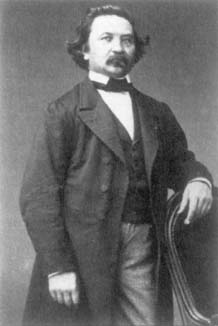Joseph Louis François Bertrand (Joseph Louis François Bertrand)

Bertrand was a professor at the École Polytechnique and Collège de France. He was a member of the Paris Academy of Sciences and was its permanent secretary for twenty-six years. He was the son of physician Alexandre Jacques François Bertrand and the brother of archaeologist Alexandre Bertrand. His father died when Joseph was only nine years old, but that did not stand in his way of learning and understanding algebraic and elementary geometric concepts, and he also could speak Latin fluently, all when he was of the same age of nine.
He conjectured, in 1845, that there is at least one prime between n and 2n − 2 for every n > 3. Chebyshev proved this conjecture, now called Bertrand’s postulate, in 1850. He is also famous for a paradox in the field of probability, now known as Bertrand’s Paradox. There is another paradox in game theory that is named after him, called the Bertrand Paradox. Bertrand translated into French Carl Friedrich Gauss’s work on the theory of errors and the method of least squares.
In the field of economics he reviewed the work on oligopoly theory, specifically the Cournot Competition Model (1838) of French mathematician Antoine Augustin Cournot. His Bertrand Competition Model (1883) argued that Cournot had reached a very misleading conclusion, and he reworked it using prices rather than quantities as the strategic variables, thus showing that the equilibrium price was simply the competitive price. In 1858 he was elected a foreign member of the Royal Swedish Academy of Sciences.
Born
- March, 11, 1822
- Paris, France
Died
- April, 05, 1900
- Paris, France
Cemetery
- Cimetière de Montparnasse
- Paris, France

